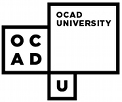[Back to Design Exchange Presentation] Inclusive Web Design
Jutta Treviranus
Director ATRC
The flexible agenda...
- Wendy Porch: An Overview of Accessibility
- Colin Clark: Accessibility and Usability
- Chris Ridpath: Guidelines and Standards
- Jan Richards: Authoring Tools
- Greg Gay: Innovative Collaborative Environments
- Charles Silverman: Creating Rich Media Alternatives
Hands-on
- Session 1: Practical Accessibility Workshop
- Session 2: Rich Media and Online Collaboration
- Optional: Tour of ATRC and demonstration of Assistive Technologies
Requests?
- Priorities?
- Specific issues or problems?
- Examples to use?
"Disability" in an Online Environment
- The result of a mismatch between the needs of the individual and the resource or method of delivery
- Method of presentation
- Method of control
- Resources delivered
- Not a personal trait but artifact of relationship between user and resource provision system
Accessibility
- The ability of the information technology environment to adjust to the needs of all users.
Accessible Environment
- Flexible delivery system
- Availability of equivalent alternatives
General Principles
- Flexible Presentation: Separate content and structure from presentation
- Flexible Control: Separate function from method of control
- Flexible Navigation: Structure the content
- Provide alternative equivalents when this is not possible
- Provide informative labels
Timing
- Inclusive design from the start
- Retrofitting
Positioning
- Integrated into workflow
- Specialized function
Who needs this?
 1
1 A pie chart showing that of US adults age 18 and older:
25% have severe difficulties accessing unmodified web pages and are
very likely to need accessible design practices.
37% have mild difficulties and are likely to need accessible design
practices, and the remaining 37% have either minimal difficulties or
no difficulties and are not likely to need accessible design
practices.
The source is a study commissioned by Microsoft, conducted by
Forrester Research Inc., 2003
Who Needs This?
- Visual, dexterity, and hearing difficulties are the most common among working-age adults:
- Approximately one in four (27%) have a visual difficulty or impairment.
- One in four (26%) have a dexterity difficulty or impairment.
- One in five (21%) have a hearing difficulty or impairment.
- Somewhat fewer working-age adults have a cognitive difficulty or impairment (20%) and very few (4%) have a speech difficulty or impairment.
Who Needs This?
 2
2
A pie chart showing that of US 18 to 64 year olds, 22% (or 37.2)
million are very likely to require accessible design practices, 38%
or 64.2 million are likely to require accessible design practices,
and 40% or 67.6 million are not likely to require accessible design
practices.
The source is a study commissioned by Microsoft, conducted by
Forrester Research Inc., 2003
Other Instances of Mismatch
- Alternative access systems (PDA, cell phone, etc.)
- Disabling environments
- Competing tasks
- Cultural differences
- Linguistic differences
Why do this?
- Fairfax Digital have:
40 sites - 5 or 6 key destinations - smh.com.au, theage.com.au, drive.com.au, mycareer.com.au, domain.com.au, afr.com.au
- SMH/AGE alone:
135 million PI\'s per month - 6 million unique visits - The leading News sites in Australia
- 3 to 4 minute average session times
Why do this?
What Fairfax did:
- moved their biggest sites across to XHTML/CSS in a 6 month timeframe
- Had the smoothest rollout they have ever experienced, and
- will save a million $ in bandwidth per year!
Three Approaches to Meeting Accessibility Commitments
- Accessible Resource
- Single Compliant Resource approach
- Media rich and "accessible" alternative approach
- Accessible System
- Transformation based approach
 1
1 

